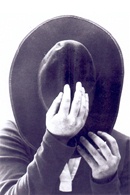All Nonfiction
- Bullying
- Books
- Academic
- Author Interviews
- Celebrity interviews
- College Articles
- College Essays
- Educator of the Year
- Heroes
- Interviews
- Memoir
- Personal Experience
- Sports
- Travel & Culture
All Opinions
- Bullying
- Current Events / Politics
- Discrimination
- Drugs / Alcohol / Smoking
- Entertainment / Celebrities
- Environment
- Love / Relationships
- Movies / Music / TV
- Pop Culture / Trends
- School / College
- Social Issues / Civics
- Spirituality / Religion
- Sports / Hobbies
All Hot Topics
- Bullying
- Community Service
- Environment
- Health
- Letters to the Editor
- Pride & Prejudice
- What Matters
- Back
Summer Guide
- Program Links
- Program Reviews
- Back
College Guide
- College Links
- College Reviews
- College Essays
- College Articles
- Back
Anxiety as a Result of Ignorance
Recently, I began to experience quite pronounced and sharp back pain, and, considering my position, I could not help but become the target of so-called anxiety, while I was able to avoid it only with full knowledge of the problem. Now everything has been clarified, and I confess that I have no reason for anxiety and doubt, because the main direction has been determined, and I know how to move to the desired further. So, I dare to suggest that the main cause of anxiety as a condition is ignorance.
I want to begin by saying that anxiety is a disturbing state, or, in other words, a state that is disturbed by rest. If it is characteristic of a disturbance of rest, then it would be fair to conclude that this violation comes from the opposite tension of rest. Take, say, a schoolboy, a sixth grade student. He needs to write an important work, but the problem is that he could not fully master the material for some reason. As a result, while carrying out the work, he will certainly experience stress as a result of uncertainty in the knowledge and understanding of the material. In other words, for these reasons, the poor fellow will be forced to be in complete tension. But will this cause concern? Probably, the student will acquire this condition later; then it will become the result.
Ignorance and lack of control in my opinion are the makings of anxiety. Once I, trying to cope with anxiety, decided to turn to the most wonderful book by Dale Carnegie, devoting myself to a specific part about anxiety. There the author sought to help the reader to cope with himself, for this he suggested that he answer the following questions:
1. What is the problem?
2. What caused the problem?
3. What are the solutions to the problem?
4. What solution do you offer?
As we can see, Dale [and not only] encourages readers to literally come to terms with the situation, but at the same time take on the problem as such, analyzing and considering it.
Ultimately, I can conclude that, in essence, a person suffering from anxiety is prone to eternal fluctuations, perhaps he is similar to something eclectic. Doubts and anxieties prevent him from remaining in any position. And let beliefs be mistaken, but they will not give rise to anxiety in a person, which in its outcome can destroy it.

Similar Articles
JOIN THE DISCUSSION
This article has 0 comments.

Anxiety is a completely natural and human condition. However, any excess of the measure subsequently leads to not the most desirable results (illnesses). This state does not need to be fought, but its roots should be found in time and its further enhancement should be avoided.